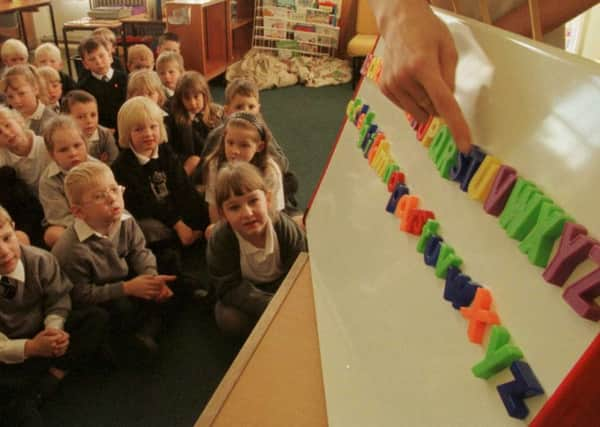Why should the Falkirk area's young pupils go through a testing time?


Like it or not, they are just a part of life and have many different forms – from Higher exams to driving tests to job interviews, these testing times come along at various points in our life.
However, most of these challenges happen when we are a few years older than four or five.
Advertisement
Hide AdAdvertisement
Hide AdThe introduction of the Scottish National Standardised Assessments (SNSA) has seen primary one children in Falkirk – and throughout the country – taking part in testing to assess their level of literacy and numeracy.
While some youngsters are taking this kind of thing in their stride, others find themselves facing a level of stress they have never before experienced in their young lives.
A Falkirk Council education spokesperson said: “The new Scottish National Standardised Assessments have been rolled out in Falkirk over the last academic session. These replaced the standardised assessments that had been used in Falkirk for many years.
“The assessments are carried out in primary one, four and seven and secondary three and are used to support teachers in planning future learning. Our teachers and head teachers have not reported to us they have experienced any difficulty in administering the assessments and the council has not received any complaints from parents.”
Advertisement
Hide AdAdvertisement
Hide AdAccording to the Educational Institute of Scotland (EIS), the country’s largest teaching union, there is just no need to carry out such an assessment of primary one pupils.
Colin Findlay, Falkirk EIS secretary, said: “The EIS view on the P1 testing is that it is unnecessary. At that age the focus should be on structured play.”
The EIS view is shared by many, with calls for the Scottish Government to scrap the P1 literacy and numeracy assessments because teachers have reported the tests have left some pupils “shaking and crying”.
The considerable differences in the approaches schools use to explain the assessments to children have also been highlighted – some pupils were told it was simply a game on the computer while some were told they were having a test.
Advertisement
Hide AdAdvertisement
Hide AdEarlier in the year Scottish education secretary John Swinney said a government review of teacher feedback from the first year of the assessments was taking place and ministers would shortly set out changes and enhancements to the system for 2019.
So just what are these new assessments and why have they been introduced in our schools at this time?
According to the Scottish Government, school children in P1, P4, P7 and S3 now complete online standardised assessments in literacy and numeracy as part of everyday learning and teaching.
A government spokesperson said: “Assessment is a central part of everyday learning and teaching for every child and young person and these assessments have been specifically designed to reflect the way we deliver education in Scotland.
Advertisement
Hide AdAdvertisement
Hide Ad“The assessments, which are as inclusive as possible to accommodate the needs of children and young people who require additional support, help to identify children’s progress, providing diagnostic information to support teachers’ professional judgement.
“There is no pass or fail and children and young people do not have to revise or prepare for these assessments. The SNSA, which aligns with the Curriculum for Excellence, has been introduced as part of the National Improvement Framework for Scottish Education to provide teachers with objective, comparable information about progress, which will help improve outcomes for all children and young people.”